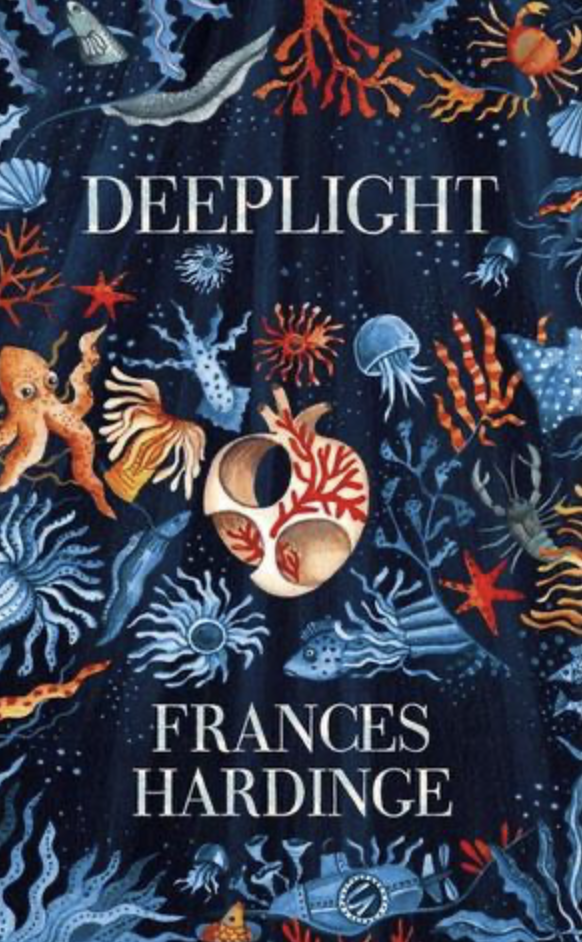Disastrous Friends and Mesmerizing Sea Gods: A Book Review
 “A great main character is a character who’s fully committed to a terrible plan.”
“A great main character is a character who’s fully committed to a terrible plan.”
Marti Noxon, Writer, Showrunner
Recently I listened to a podcast called THE SCREENWRITING LIFE that featured an interview with Marti Noxon. Her screenwriting credits include SHARP OBJECTS, FRIGHT NIGHT and BUFFY THE VAMPIRE SLAYER. When she talked about great main characters having a terrible plan, it reminded me of an astoundingly imaginative book called DEEPLIGHT, by Francis Hardinge.
The novel’s main character, Hark, is a street-tough hood who is pretty misguided. As you get into the book, you might start thinking, “That’s batshit crazy. Is he really going to do that?” But if you’re like me, you can’t stop wondering how Hark will evolve — as if he’s a messed-up younger brother who has a good heart, but people don’t usually see it.
Hark lives on an island surrounded by a mysterious, fantastical ocean. If people dive deep enough they come to an undersea where humans can breathe the strange water. Within it, monstrous, entrancing gods once roamed. They killed themselves off in a terrible battle, but pieces of them survive, so-called god-glass, which is “harder than diamond and extremely valuable.”
Hark is thrust into a series of dark deeds by a childhood friend named Jelt, a cunning young man who tends to disappear when he’s needed and continually demands Hark’s loyalty and under-handed services. Hark realizes that his friend is terribly flawed and is manipulating his sense of guilt. But Hark loves him deeply because they helped each other survive when they orphaned boys.
The two punks embark on a harrowing quest that results in Hark’s discovery of something extraordinarily precious — one of the gods’ hearts, which is still active. It can heal people of grievous injuries – including Jelt’s wounds after he has an awful accident. But the heart also transforms people, and Jelt becomes increasingly monstrous.
I so admire the depth of Hardinge’s imagination and literary style. Here’s one of her passages, when Hark is thinking about one of the destroyed gods, called the Hidden Lady.
“She would not have been pretty, in the way that girls or women could be. She would not even have had the beauty of moonlight on water, or the steely blue leap of winged fish, or the red berries on the cliff thorns. These things were fair. They filled your heart and made you glow. They were honey and spice.
“There was another kind of beauty, however, and everyone on the Myriad knew it. A twisted beauty that turned your stomach even while it turned your head.”
There’s only one “bone of contention” that I must pick with this novel. It’s billed as a story for teens and young adults who love dark fantasy. But the writing is very sophisticated. Yes, there are sharp divides between good and evil, and the emotional texturing is not as finely drawn as what one might find with, say, an Ann Patchett novel. Fans of fine literature may find that off-putting. But to my mind, the novel’s imaginative depths (literally and figuratively) make up for that in spades.
No matter how old you are, if dark fantasy and supernatural tales make your tail wag, then dive into this book. You might find it a hard act to follow once you reach the end and are looking for your next novel escape hatch.